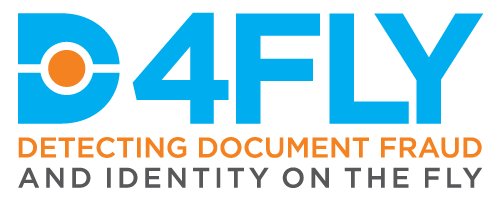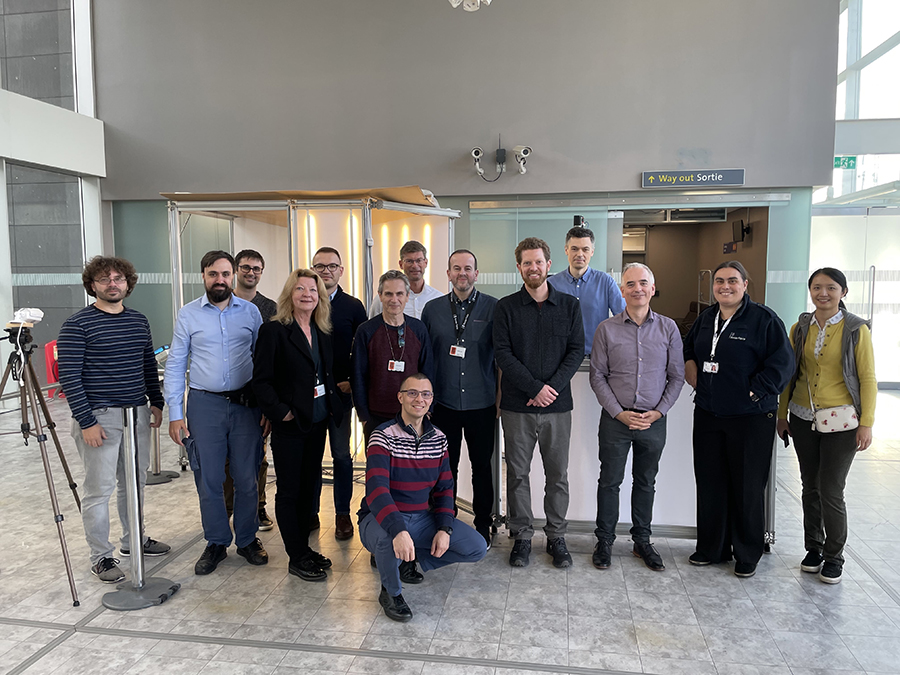This October 2021, the D4FLY team successfully organised the first round of field tests in UK demonstrating in real environment its document & identity verification solutions for no-fixed post checks for coach travellers and highly automated on-the-move border control solutions for travellers arriving by train.
The D4FLY solutions on document and identity check for coach travellers were set-up and tested in Portsmouth International Ferry Terminal which was operational. Three people from Veridos and three from the University of Reading were there to support the coordination of the test sessions along with one stakeholder representative that observed the whole process. The participants group that trialled the D4FLY solutions, and provided feedback on their experience as expert users, consisted of eight people from the local operational team and five UK Home Office professionals.
The D4FLY kiosk providing enhanced traveller enrolment services was set up in a reserved area on site allowing smooth multiple sessions execution by all recruited participants. A dedicated application for traveller verification was also tested inside a bus at the Portsmouth International Port with the support of consortium members acting as travellers. Multiple verification rounds were performed by the border guard participants. The verification solution performed quite well even in challenging light conditions and effort will be put in the next months’ towards improving further its efficiency minding extreme illumination conditions.
People from NTNU and WAT universities joined also Veridos and University of Reading teams in Ebbsfleet International Train Terminal for the setup and validation of the D4FLY automated on-the-move border check solutions based on multimodal biometric technology.
The D4FLY technology consisting of an enrollment kiosk and a biometric fast-track identity verification corridor was running at the departure and arrival halls in the terminal which was not operational at the time of the field test execution. Eight border guards from the UK home office had the chance to test the solutions and provide their feedback indicating minor pain points and guidelines for further improvement.
The biometric sensors attached to the D4FLY kiosk were: a 3D face camera, a thermal camera, an RGB camera, an Iris capture device, a passport reader and an NFC reader. Consortium members performed multiple enrollment sessions acting as travelers using smartphone devices provided by Veridos team with the D4FLY traveler application installed.
After the completion of enrollment, the traveler actors performed multiple walks through the D4FLY biometric corridor allowing data collection and analysis for the validation of the various biometric technologies, as well as calibration of the multimodal fusion module for identity verification. The UK border force recruited participants had the chance the observe the whole process using the D4FLY border control application from a given tablet device. The D4FLY technologies performed well with minor issues noted while valuable feedback was collected from the border guard professionals pointing out for iterations in the design that would improve the quality of the user experience offered and technology acceptance level.
The D4FLY members are now working on the updated version of the technology aiming to address all guidelines for improvement pointed from the experts’ feedback. The next version of the solution will be demonstrated and tested in Greece on February 2022.

